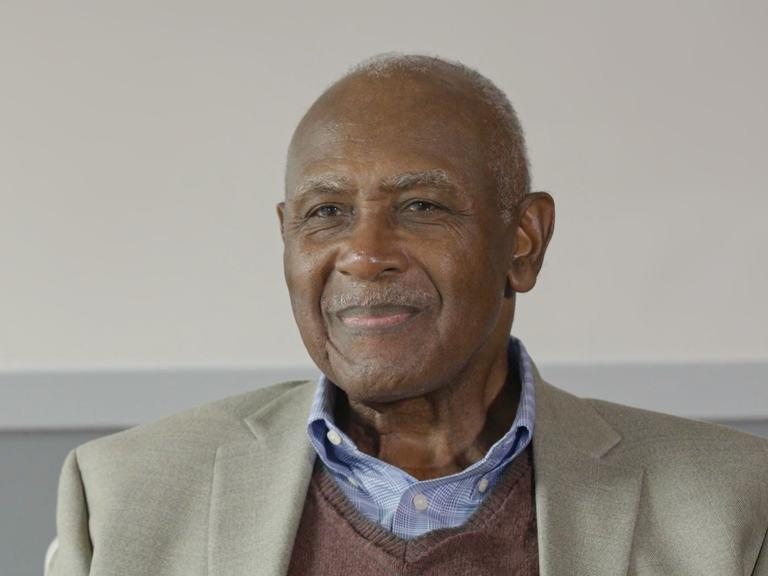Immediate Appeal Filed in Clemson College Case
Press Release
December 27, 1962

This item is featured in:
Cite this item
-
Press Releases, Loose Pages. Immediate Appeal Filed in Clemson College Case, 1962. b9720212-bd92-ee11-be37-6045bddb811f. LDF Archives, Thurgood Marshall Institute. https://ldfrecollection.org/archives/archives-search/archives-item/0be30ef8-a40d-40ca-8681-3b4e99df71b7/immediate-appeal-filed-in-clemson-college-case. Accessed February 17, 2026.
Copied!
- PRESS RELEASE
NAACP LEGAL DEFENSE AND EDUCATIONAL FUND
DR. ALLAN KNIGHT CHALMERS JACK GREENBERG CONSTANCE BAKER MOTLEY
President Director-Counsel Associate Counsel
=e
JATE APPEAL FILED IN
SLEMSON COLLEGE CASE
December 27, 1962
NEW YORK -- NAACP Legal Defense Fund attorneys filed an immediate
appeal this week from a decision by a South Carolina judge denying
Harvey Gantt's suit to transfer from Iowa State to Clemson College,
Mrs. Constance Baker Motley, chief attorney for Gantt, said
that the appeal asks the U. S, Court of Appeals for the Fourth
Circuit to hear the case as soon as possible.
She hopes to win the 19 year old Negro student's entrance to
the all-white state school by February, when the second semester
begins.
Judge C, C. Wyche of the Western District of South Carolina
ruled on December 21st that Gantt had not fully complied with
Clemson's entrance requirements, therefore, the College was justi-
fied in not admitting him,
Judge Wyche held that it was up to Gantt to prove he was denied
admission for racial reasons, and he "has not been denied admission
on the basis of his race."
The decision was based largely on a letter from the Dean of the
School of Architecture to Gantt at the time the suit was filed last
July. The letter requested an interview with Gantt to evaluate him
as a student and his credits, and some samples of his work at Iowa
State. When the suit was filed the interview was never held.
Judge Wyche held that the college has a legitimate right to evaluzt
Gantt's credits before accepting him, especially since he is a trams
fer applicant.
"Tf the plaintiff is seriously interested in cecuring a gcod
education in the field of architecture, he should have been glad to
secure and consider the wise counsel of the Dean of Arshitesture c*
a great school like Clemson College," he commented.
Gantt has attempted to transfer to Clemson since January 1961.
He was then attending Iowa State on a South Carolina out-of-state
15
grant. Such financial assistance is provided Negro students who
wish to pursue a course of study not offered in the state Negro
college.
Since 1961, Gantt has written ten letters to the Registrar and
other Clemson officials in an attempt to complete his application.
At the trial held in November 1962, Legal Defense Fund attorneys
argued that this delay in considering Gantt's application was evi-
dence that his papers were handled differently from those of white
students. Fund attorneys also argued that Clemson, in not admit-
ting Gantt, was simply following a long-standing "white only" admis-
sion policy.
NAACP Legal Defense Fund attorneys for Gantt are Matthew J.
Perry and Lincoln C. Jenkins, Jr., of Columbia, S. C., Donald J.
Sampson and Willie T, Smith of Greenville, S. C., and Mrs, Constance
Baker Motley and Jack Greenberg of New York City.
2O==

